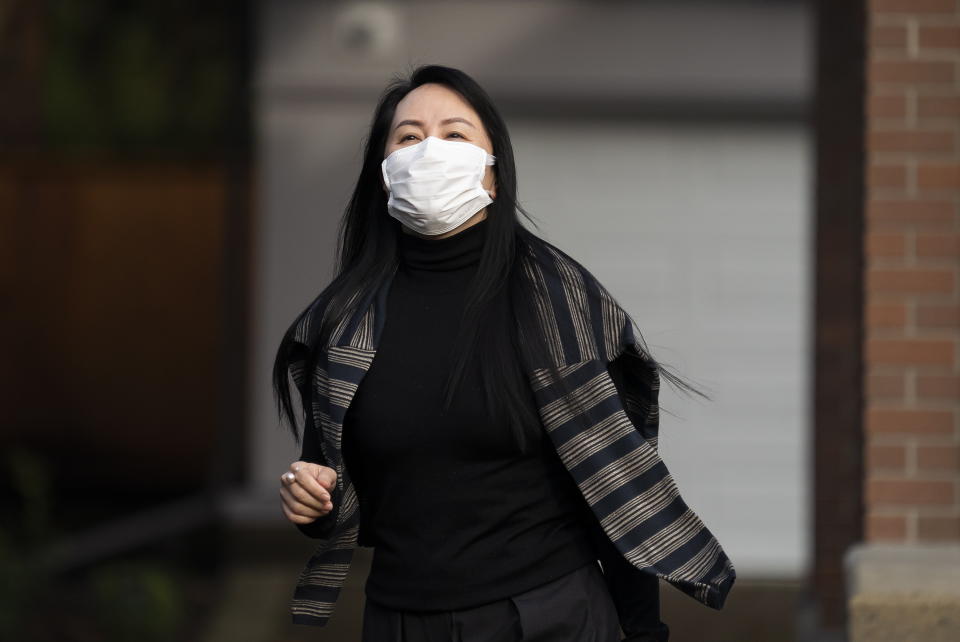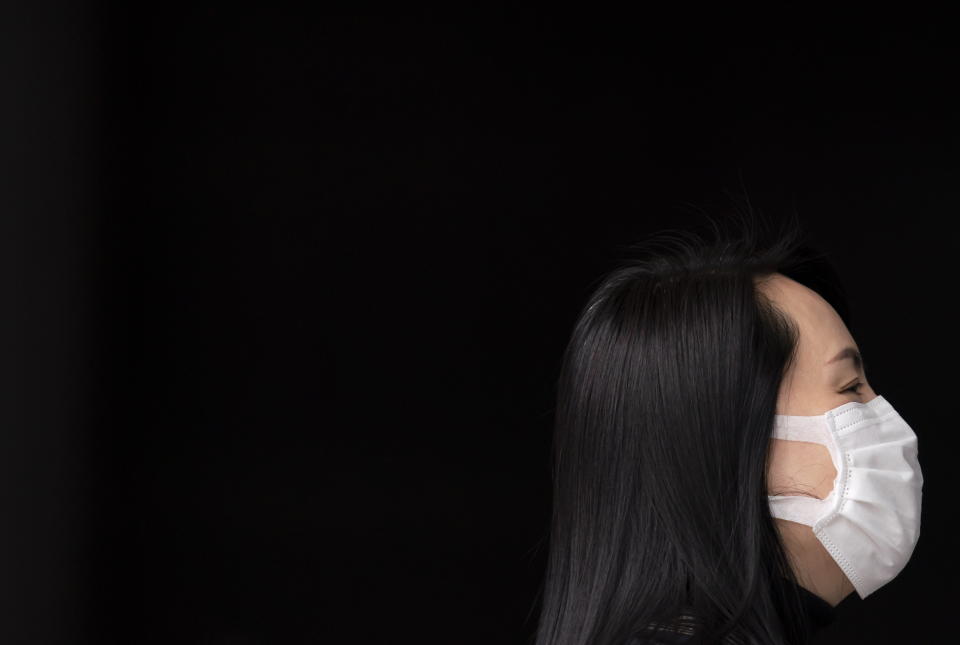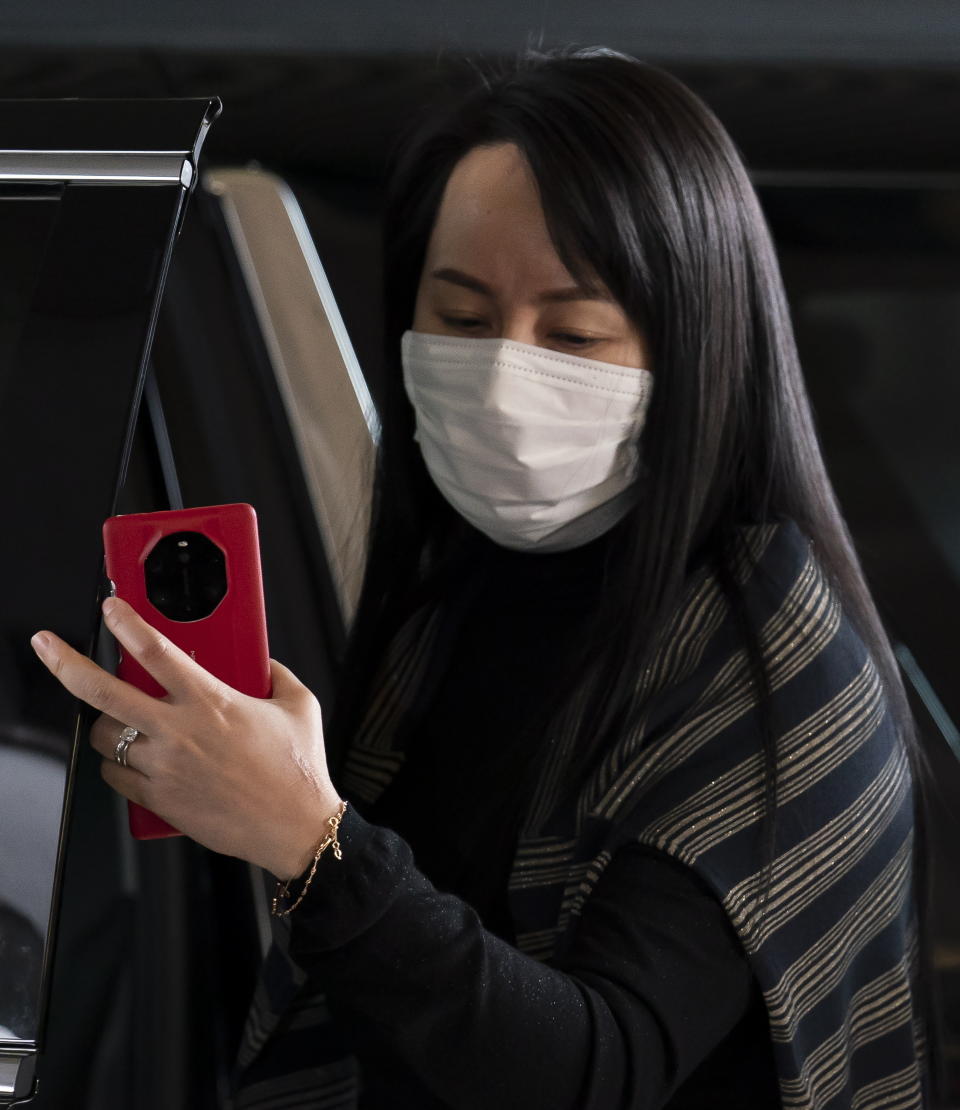Huawei CFO lawyer says Trump comments a 'salvo' in trade war
VANCOUVER, British Columbia (AP) — Comments made by former U.S. President Donald Trump turned a senior executive for Chinese communications giant Huawei Technologies, into a “bargaining chip” and “co-opted the extradition process,” her lawyers argued in a Canadian court Wednesday as they fought efforts to send her to the U.S.
Canada arrested Meng Wanzhou, the daughter of Huawei’s founder and the company’s chief financial officer, at Vancouver’s airport in late 2018. The U.S. wants her extradited to face fraud charges. Her arrest infuriated Beijing, which sees her case as a political move designed to prevent China’s rise.
The U.S. accuses Huawei of using a Hong Kong shell company called Skycom to sell equipment to Iran in violation of U.S. sanctions. It says Meng, 49, committed fraud by misleading the HSBC bank about the company’s business dealings in Iran.
Defense lawyer Richard Peck pointed to a 2018 interview in which Trump was asked if he would be willing to intervene in Meng’s case if it would help secure a trade deal with China or aid U.S. security interests.
“If I think it’s good for the country, if I think it’s good for what will be certainly the largest trade deal ever made – which is a very important thing – what’s good for national security – I would certainly intervene if I thought it was necessary,” Trump said at the time.
Peck said Trump’s comments make it clear he hoped to use Meng as leverage in trade negotiations with China.
“These words cast a pall over these proceedings,” said Peck. “They reduce Ms. Meng from a human being to chattel. His words amount to an abuse of process.”
Peck said the “abhorrent nature of the president’s words” put a stain on the extradition proceedings and the Canadian justice system.
“The requesting state’s conduct ... has subverted this process, has destroyed the integrity of the process,” said Peck. “The requesting state has not acted in good faith. This is an affront to what is fair, right, and just."
Peck told Supreme Court Associate Chief Justice Heather Holmes that the United States views Huawei as a threat and that attacks on China have come from both Republicans and Democrats.
Peck also pointed to comments made by Canadian Prime Minister Justice Trudeau in December 2019, where he said the U.S. should not sign a trade deal with China unless the case of Meng and two Canadians being held in China was settled.
“The fact that he said it is problematic,” Peck said.
Meng attended the hearing dressed in a short black dress and wearing an electronic tracking bracelet on her ankle. She listened to the proceedings through an interpreter, taking occasional drinks from a pink water bottle.
Over the next several weeks Meng’s defense team will present several justifications for halting the extradition proceedings.
Later this month, they will claim an abuse of process, saying Canada Border Services Agency officers detained and questioned Meng without a lawyer, seized her electronic devices and compelled her to give up their passcodes before her official arrest.
Her lawyers also contend the U.S. is exceeding the limits of its jurisdiction by prosecuting a foreign citizen for actions that took place in Hong Kong and said Canada was misled by the U.S. about the strength of its case.
Meng’s arrest has soured relations between Canada and China. In apparent retaliation, China detained former Canadian diplomat Michael Kovrig and Canadian entrepreneur Michael Spavor. China has also placed restrictions on various Canadian exports to China, including canola oil seed. China also handed death sentences to four Canadians convicted of drug smuggling.
Meng remains free on bail in Vancouver.



